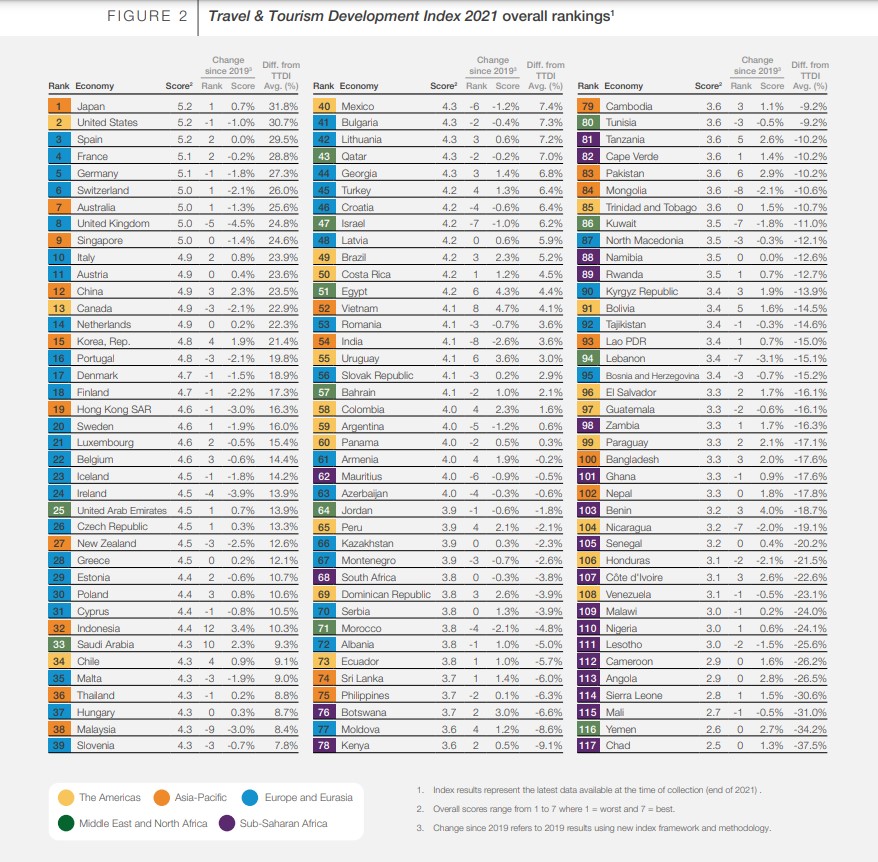The World Economic Forum (WEF) on Tuesday released The Travel & Tourism Development Index 2021-themed “Rebuilding for a Sustainable and Resilient Future”. The report assesses 117 economies based on “the set of factors and policies that enable the sustainable and resilient development of the Travel and Tourism (T&T) sector, which in turn contributes to the development of a country.”
India secured the 54th place in a global travel and tourism development index, eight positions below from 46th rank gained in 2019. However, it emerged as the topper in the South Asian region. Typically, Afghanistan, Bangladesh, Bhutan, India, the Maldives, Nepal, Pakistan, and Sri Lanka are the countries forming the region.
Pakistan climbed six positions on the ladder, from 89th rank in 2019 to 83rd in 2022.
Japan ranked no. 1 on global chart, followed by the US, Spain, France, and Germany in the top five.
Switzerland, Australia, the UK, Singapore, and Italy ranked five-to-ten series-wise.

Notably, in this year’s travel index, except for the US, the top-10 scoring countries are high-income economies of Europe or the Asia-Pacific region.
The World Economic Forum’s biennial travel and tourism study showed that the tourism sector is recovering from the pandemic lows, but the recovery is uneven, which remains a challenge.
“COVID-19 shutdowns have re-emphasized the important contribution travel and tourism makes to many economies around the world,” Lauren Uppink, Head of Aviation, Travel, and Tourism at the World Economic Forum, said.
“As the world emerges from the pandemic, economies must invest in building a strong and resilient environment to deliver the travel and tourism experience and services for many decades to come,” Uppink added.
According to the UNWTO, the increase in international visitor arrivals in January 2022 over January 2021 exceeds the overall increase in 2021.
Despite some positive trends, the sector continues to face several challenges, including unequal vaccine distribution, capacity restrictions, labor shortages, supply chain disruptions, and more.
“Government, business, and civil society leaders can address barriers to recovery by looking at the different factors that can support the long-term development and resiliency of their respective travel and tourism economies,” added Uppink.
Vietnam experienced a substantial improvement in the rankings from 60th in 2019 to 52nd in 2022 on the overall index. Indonesia also improved from 44th to 32nd rank and Saudi Arabia from 43rd to 33rd rank.
Europe was the only region whose average score has depleted since 2019. The geographical tensions and waves of coronavirus seem to spoil the overall lead.
Sub-Saharan Africa performed better, but the region still has a lot to be done.
The report says the pandemic has bared the importance of the tourism sector to the global economy. It emphasized that countries must prioritize better hygiene and security to ensure the sustainable growth of the industry.

